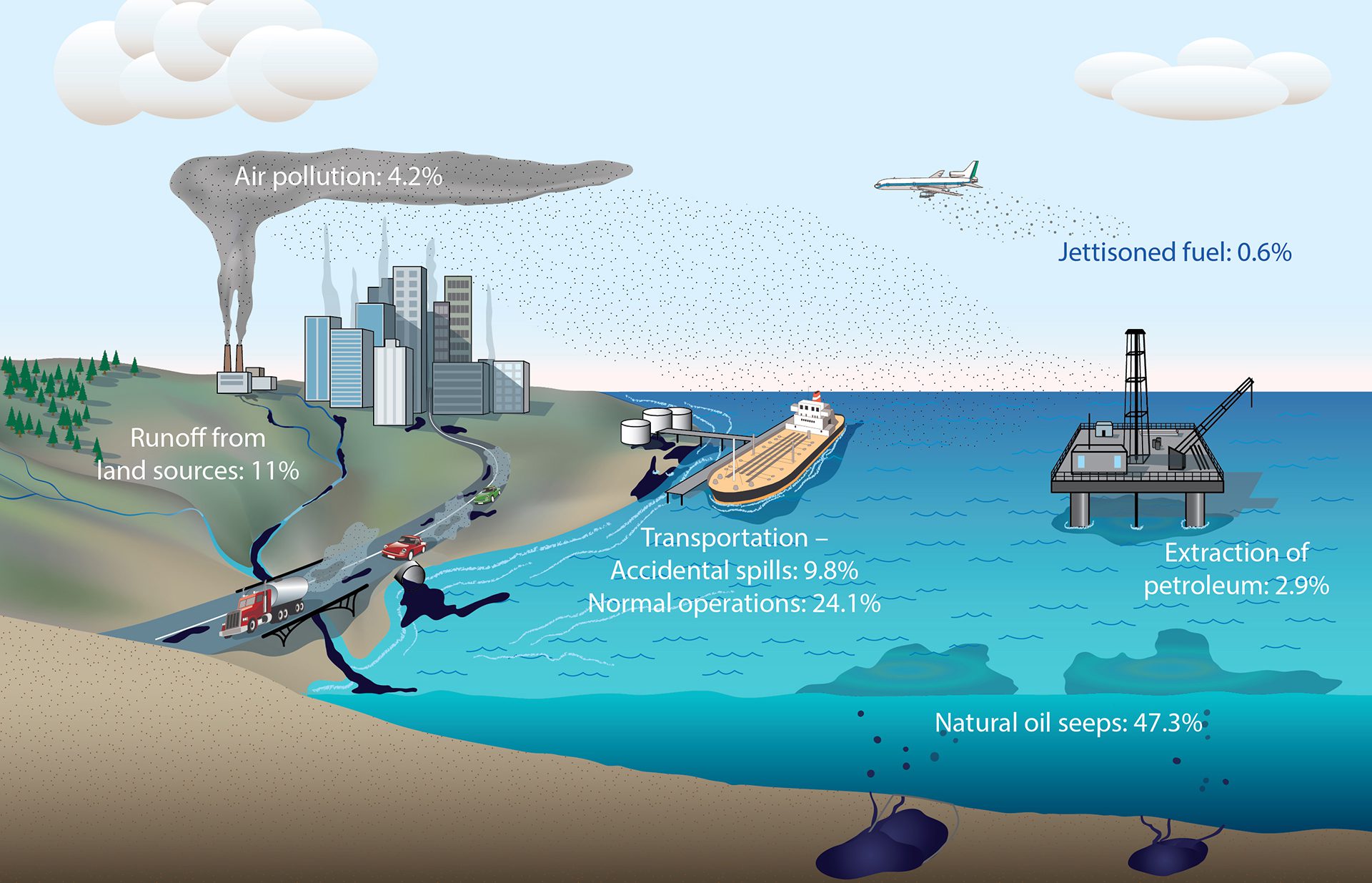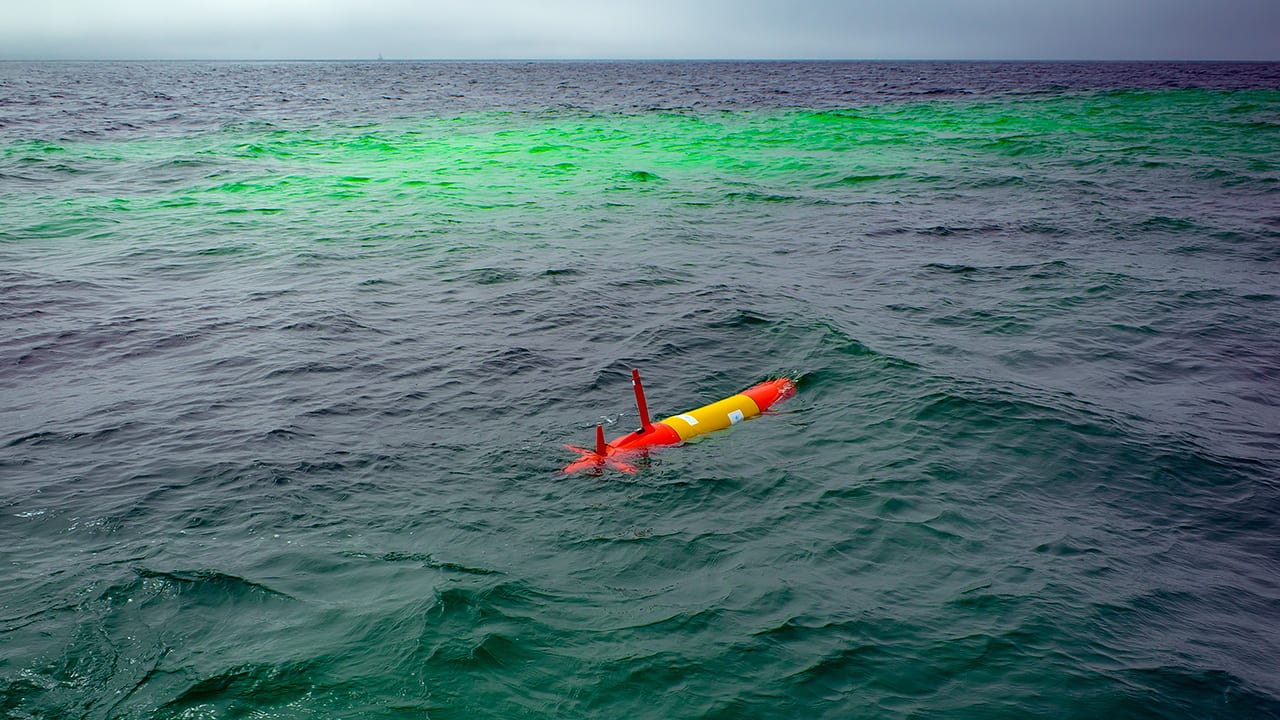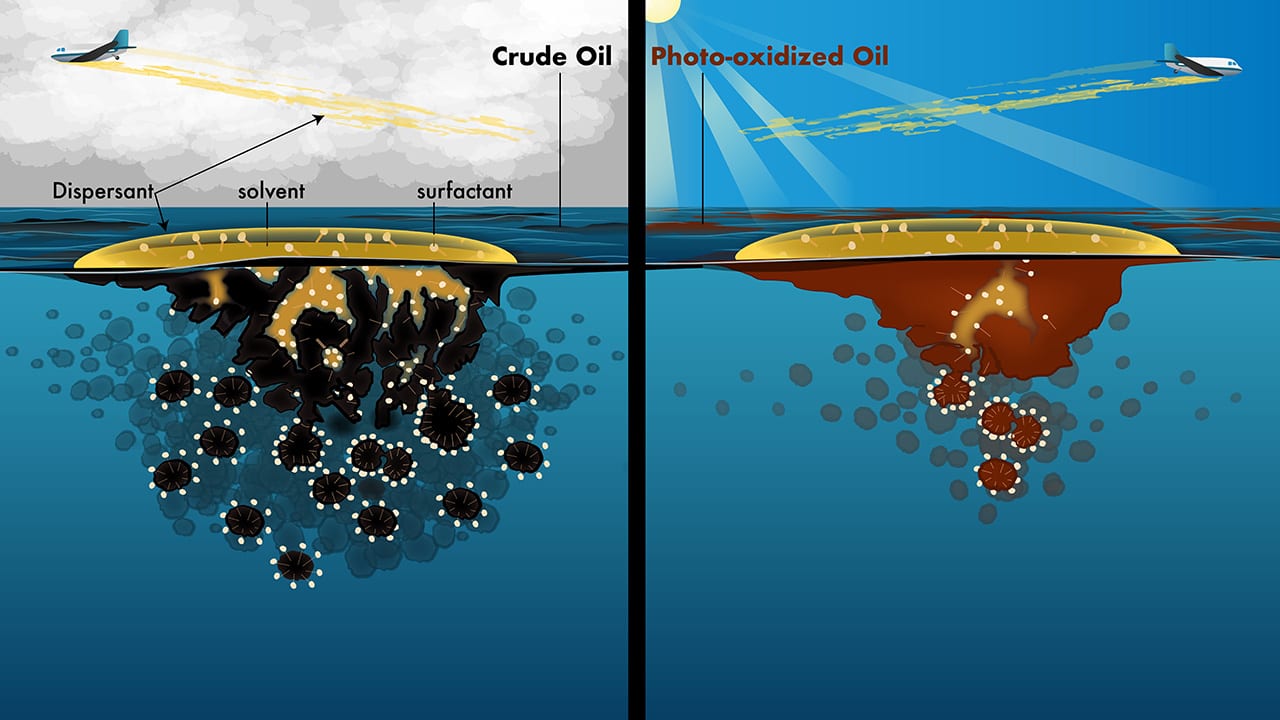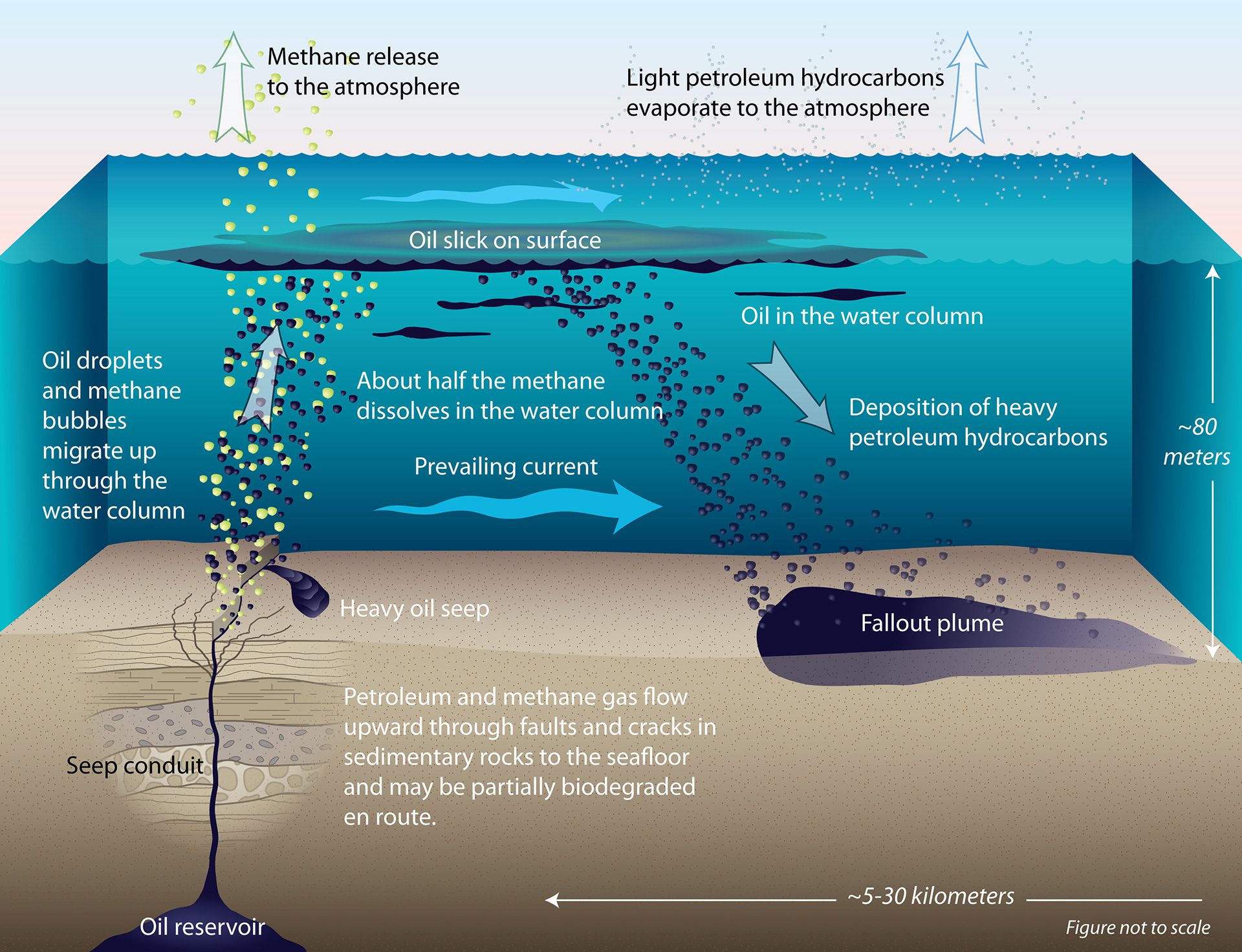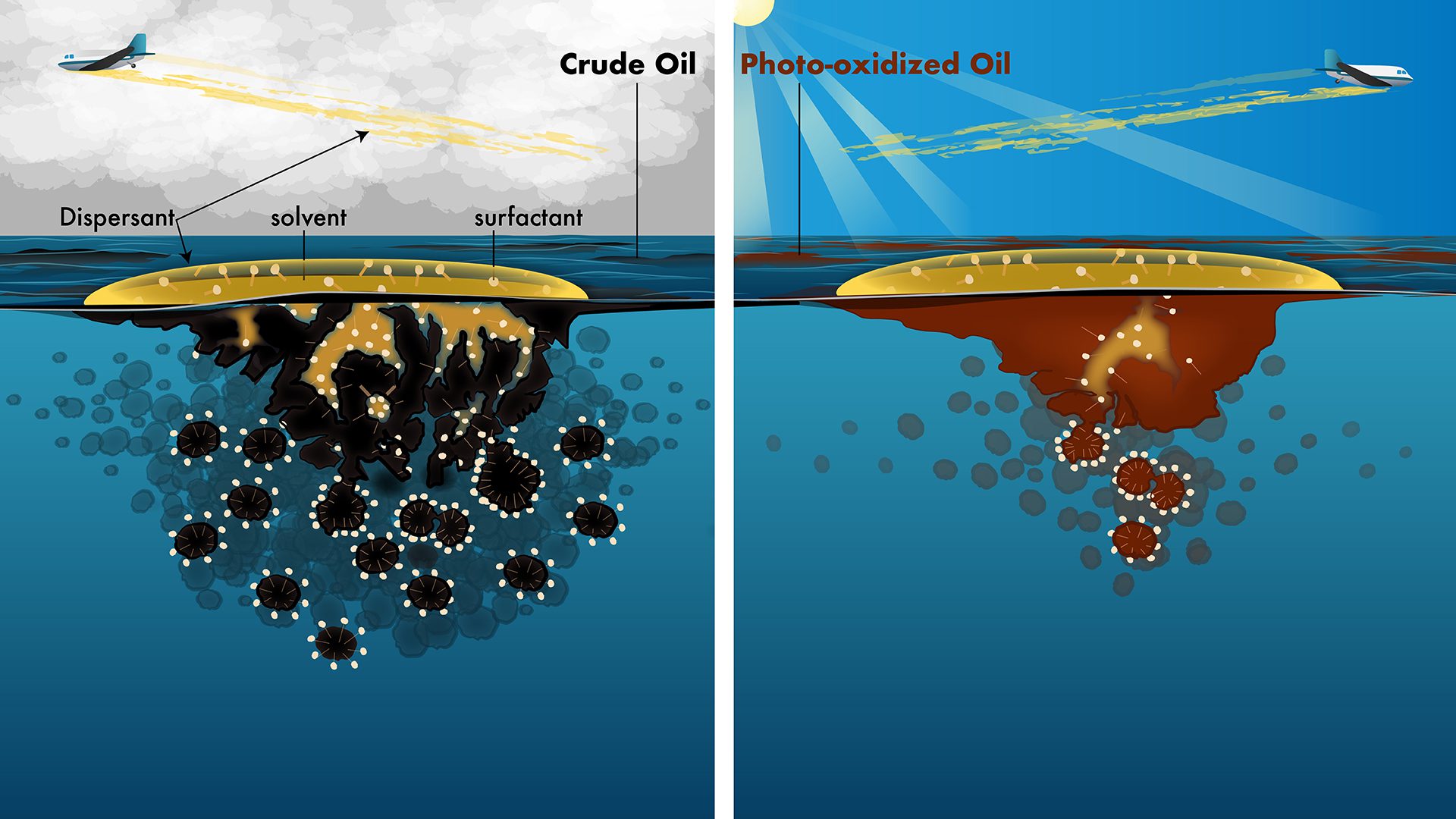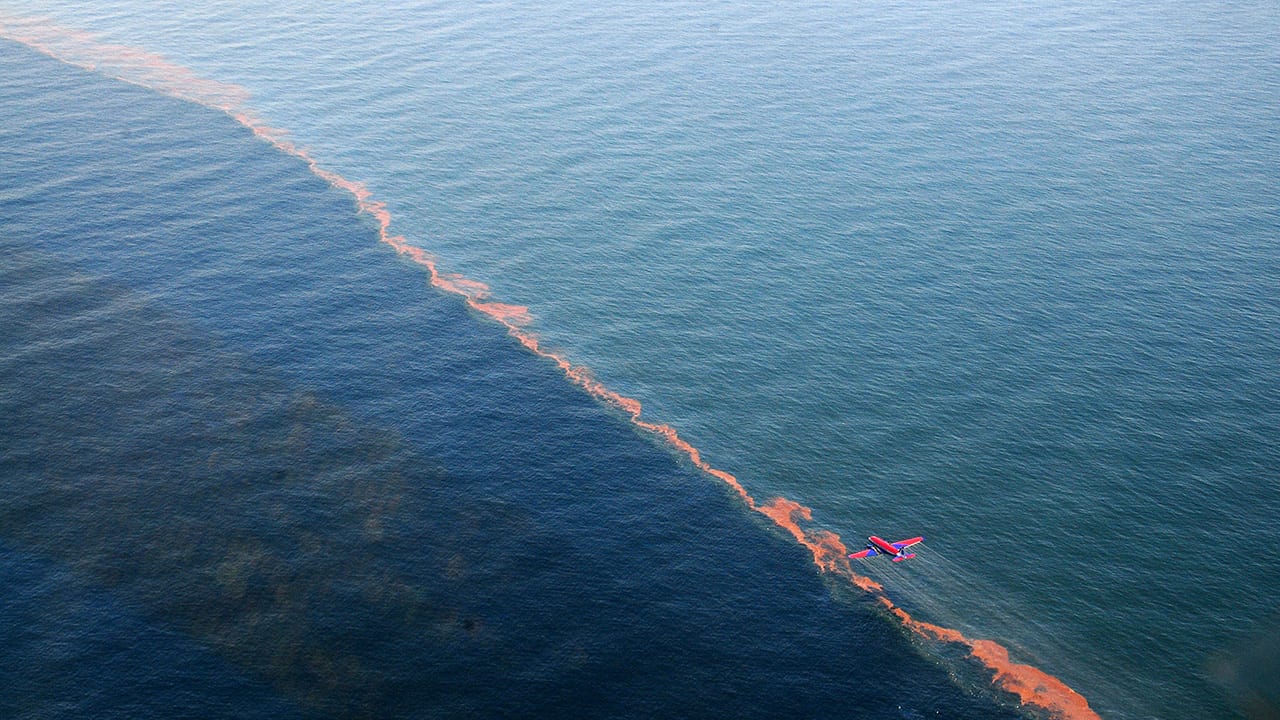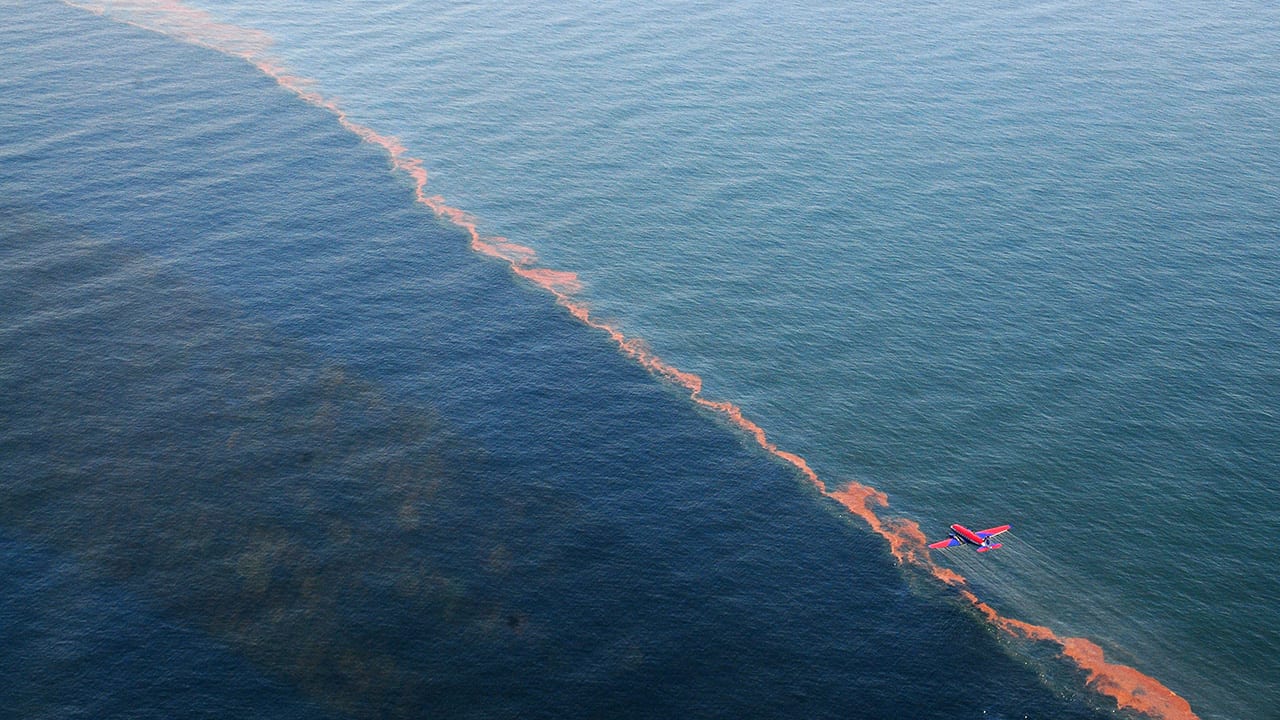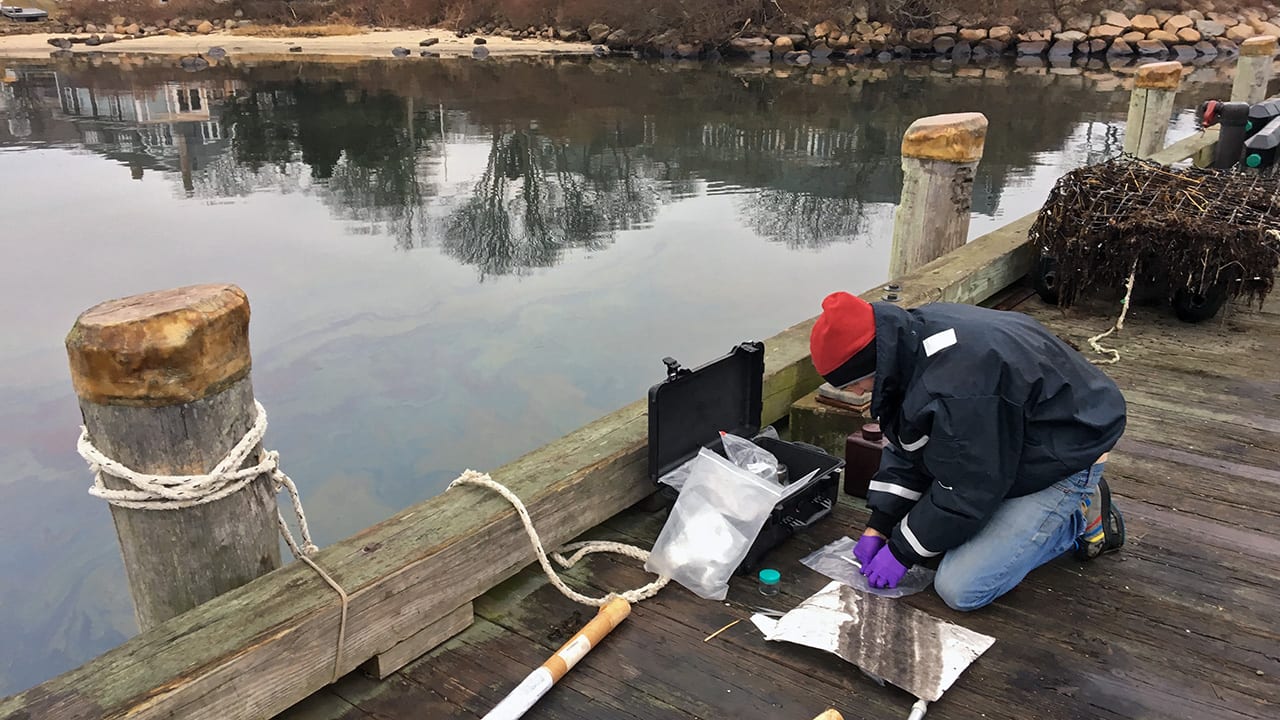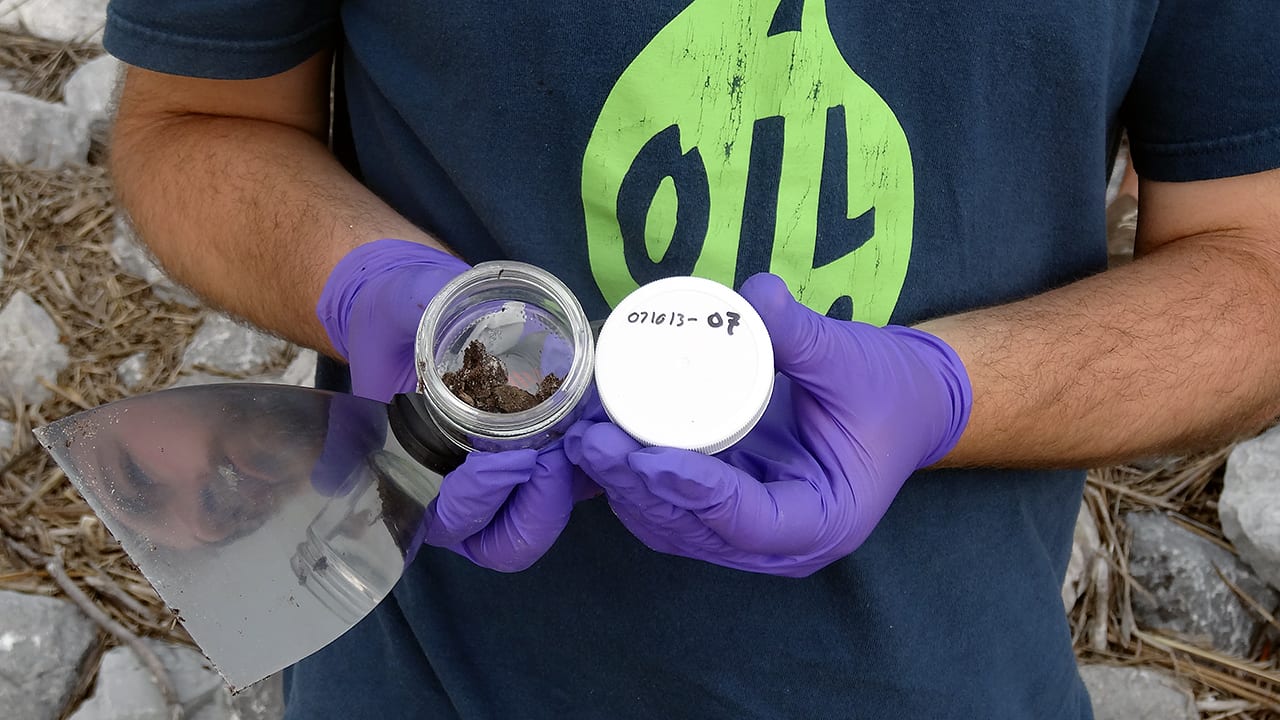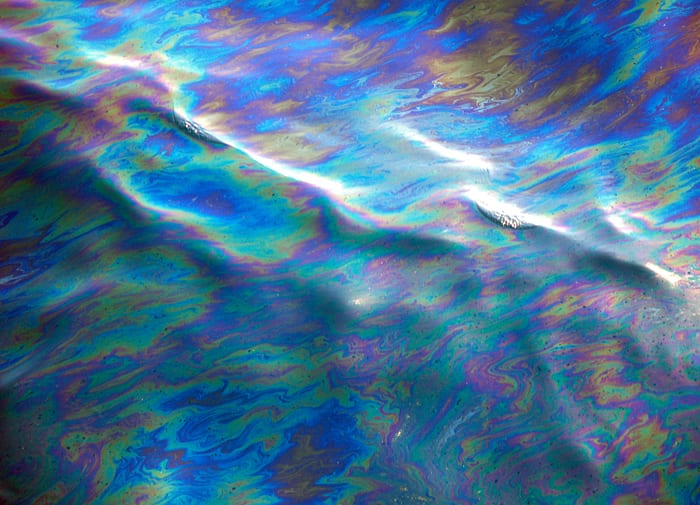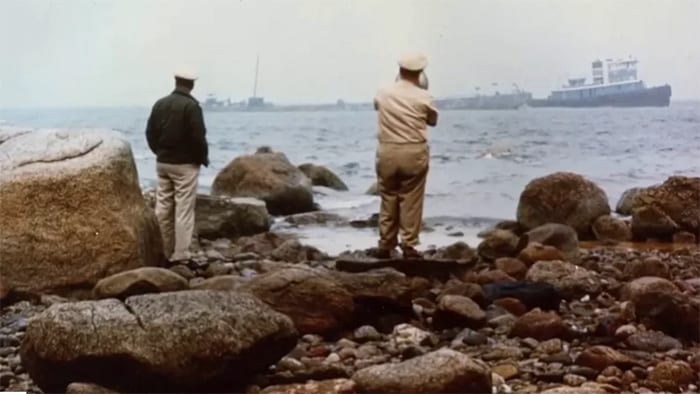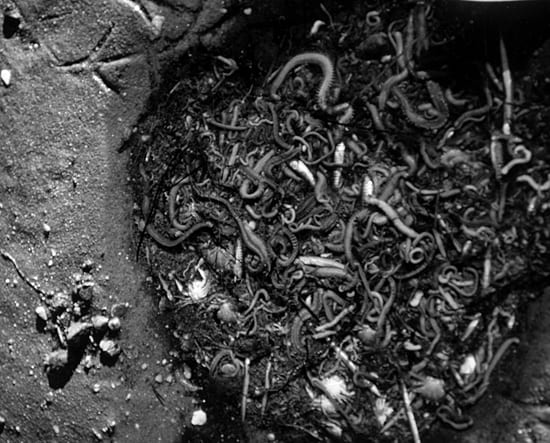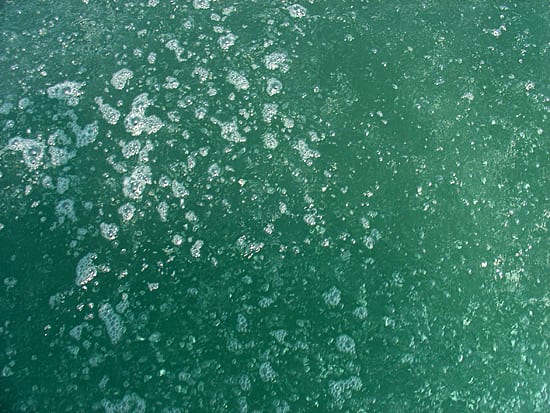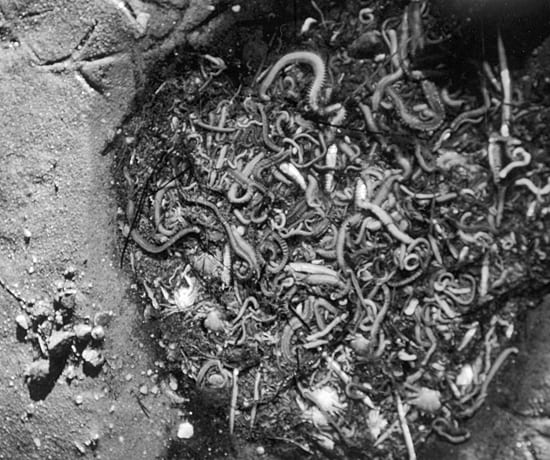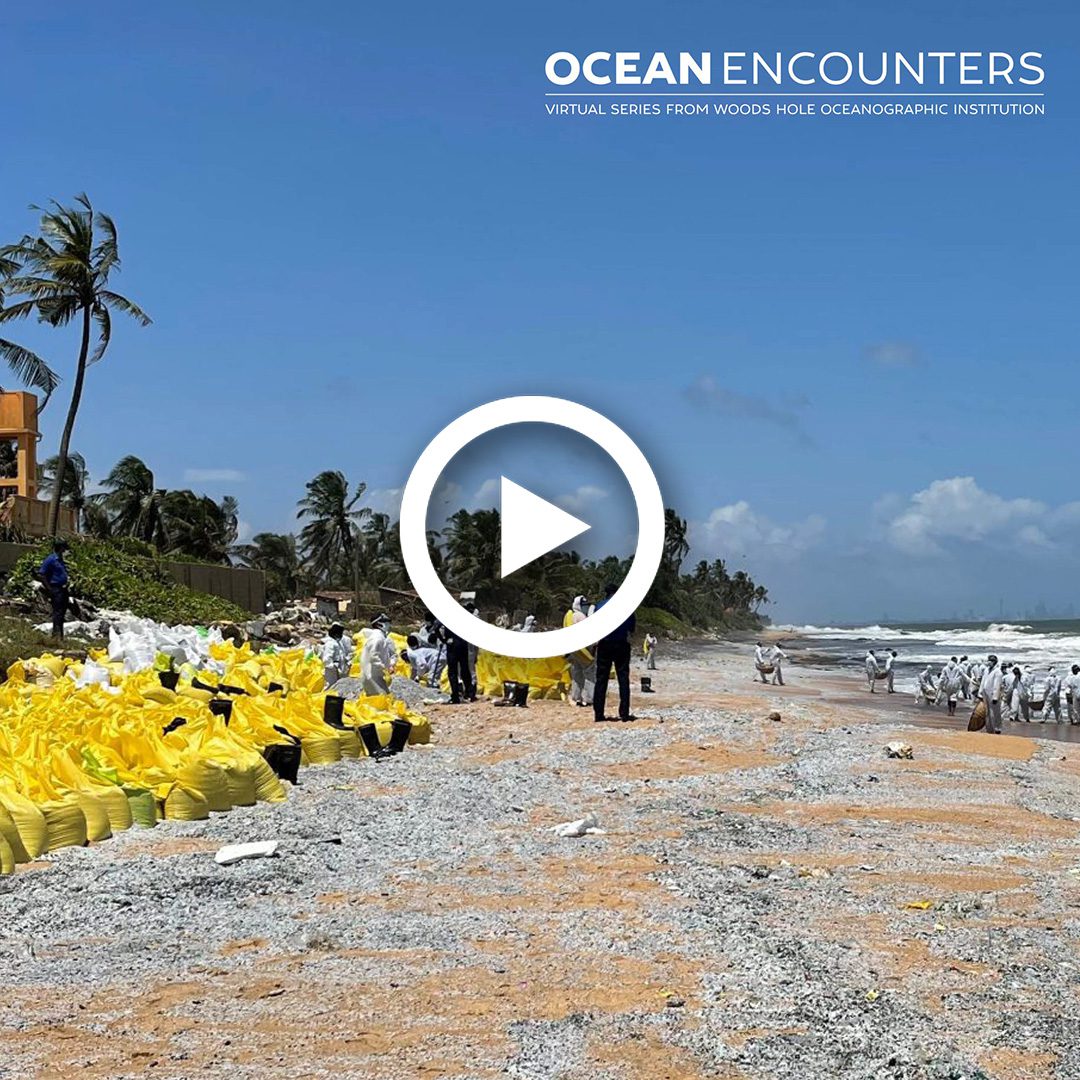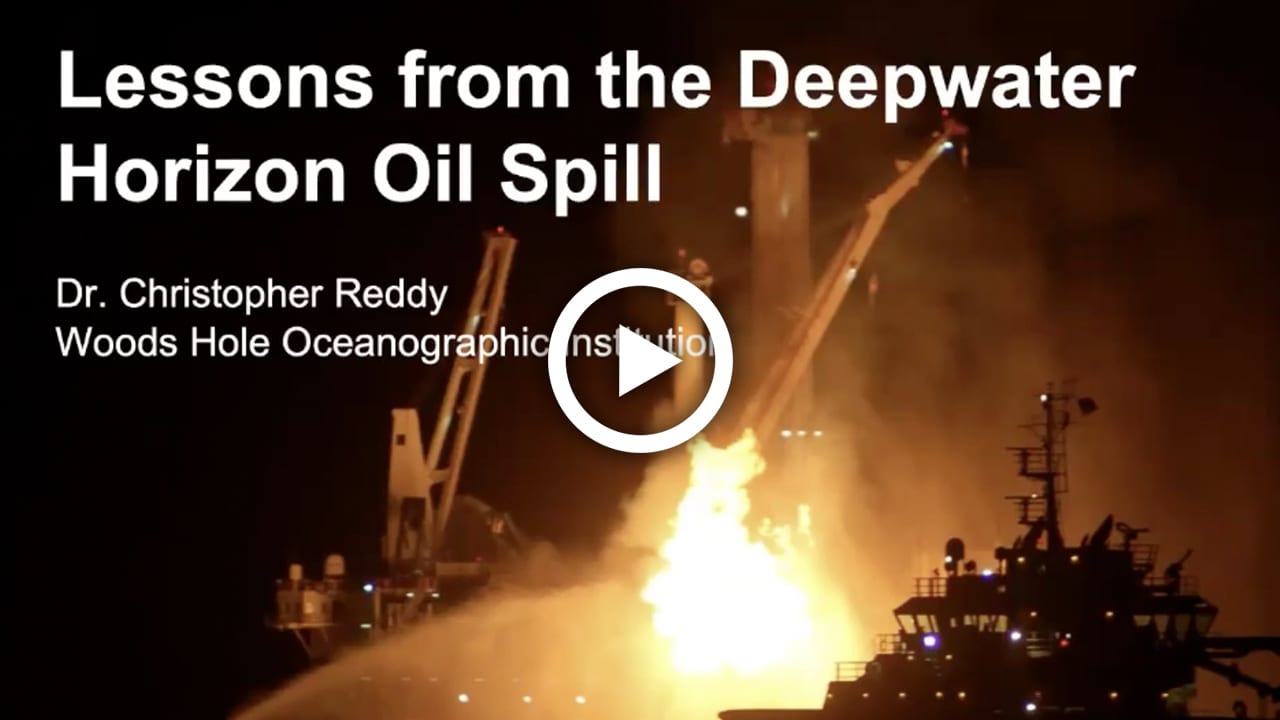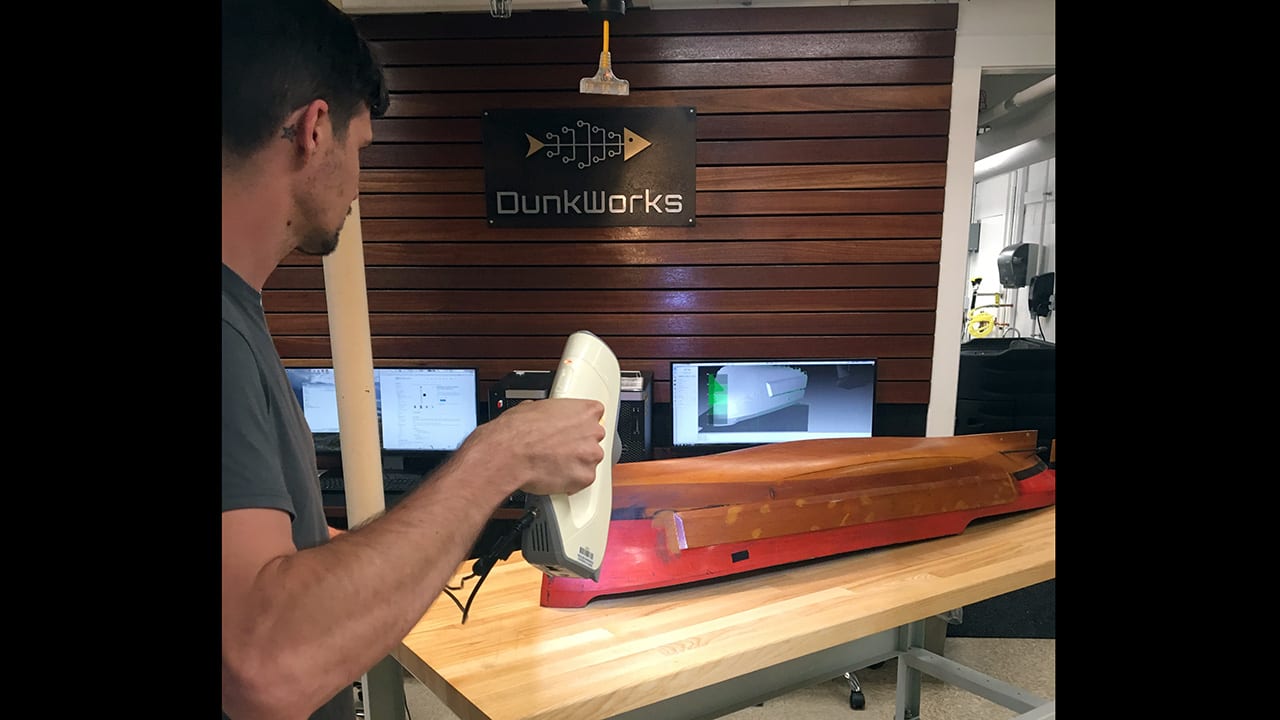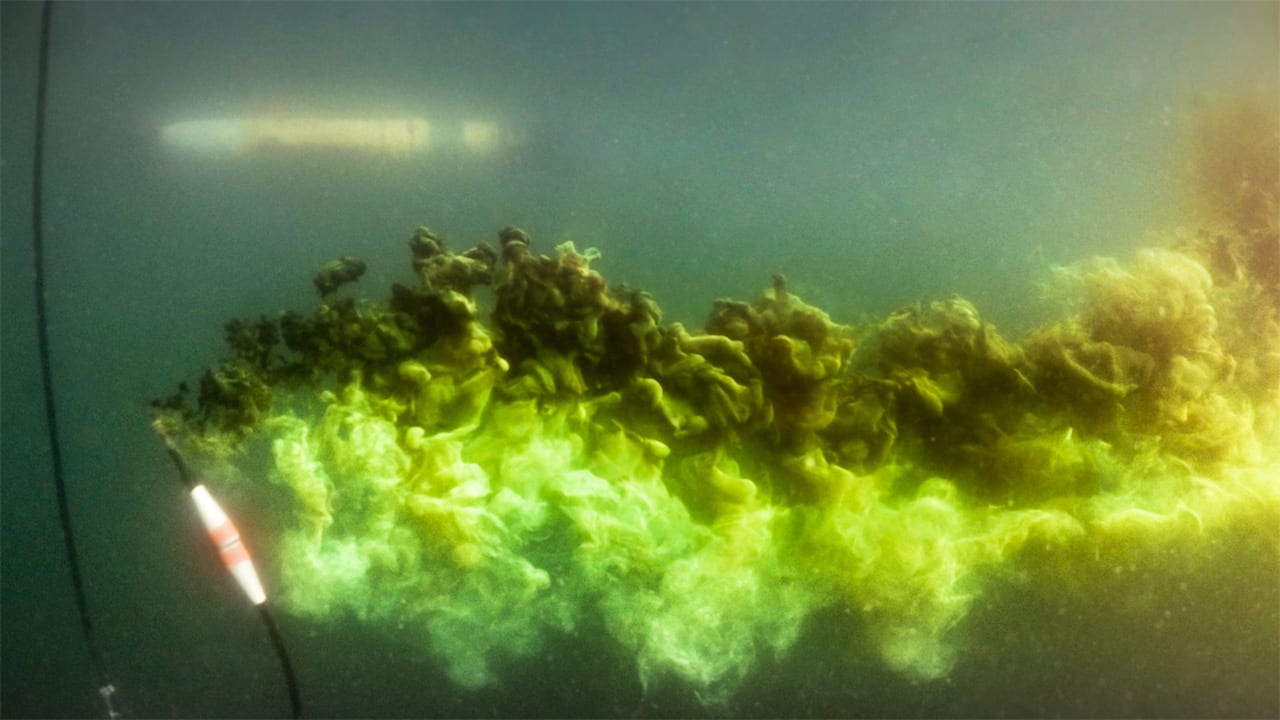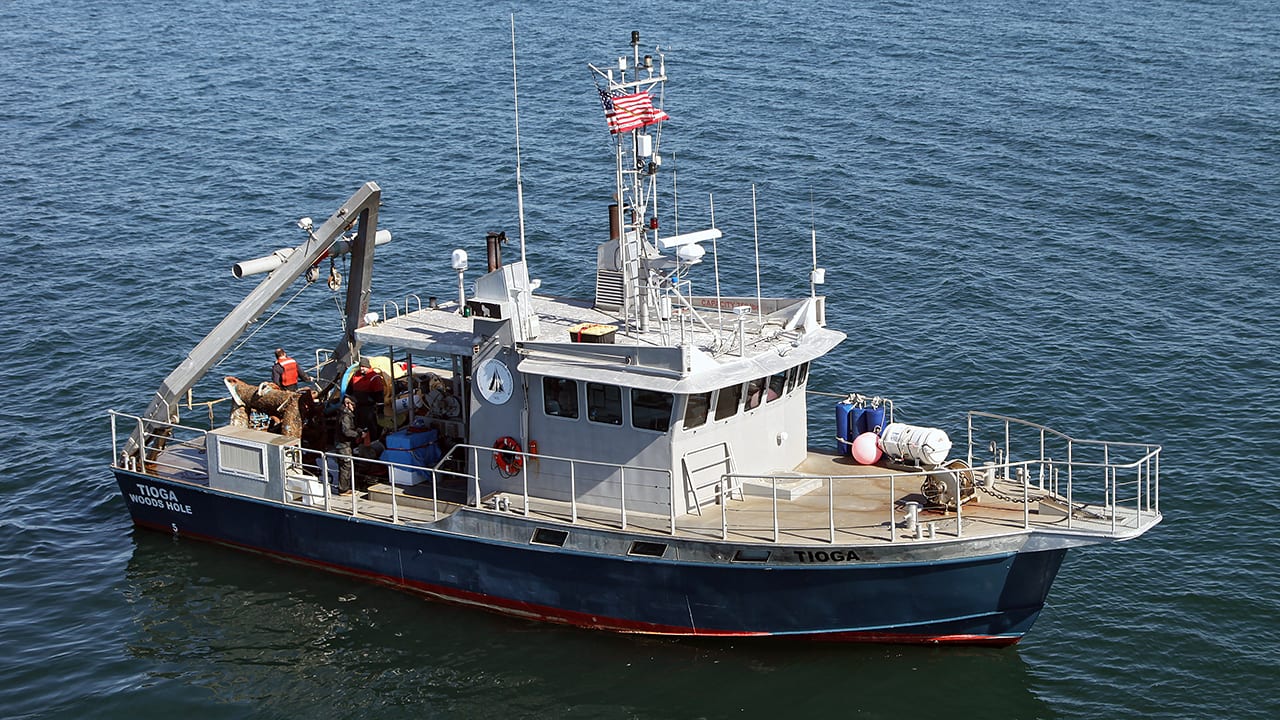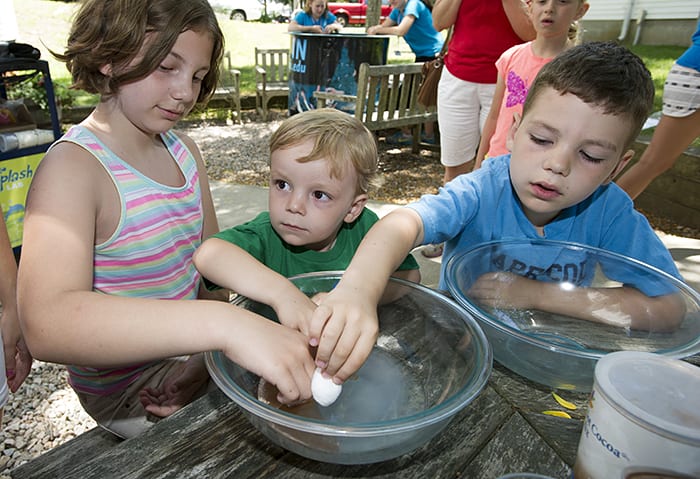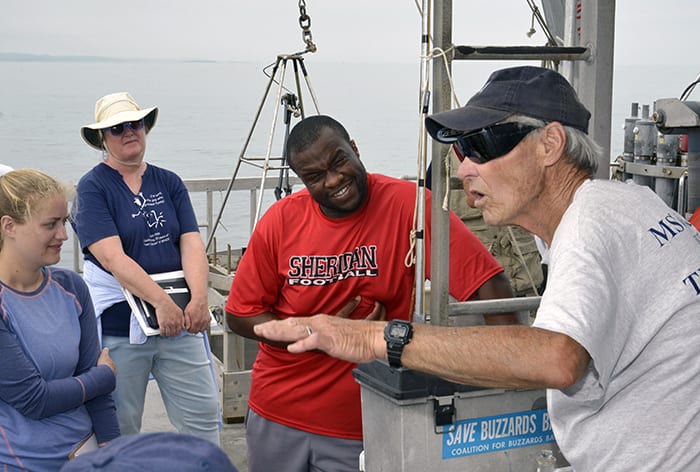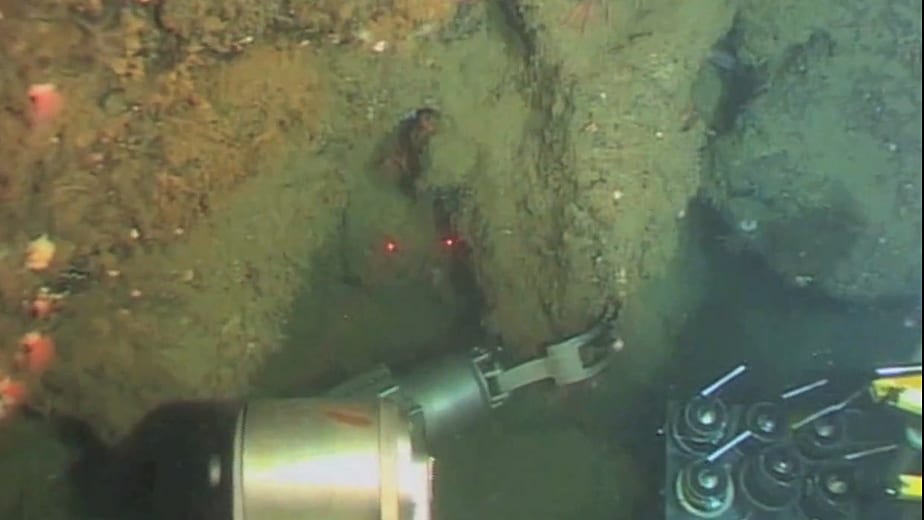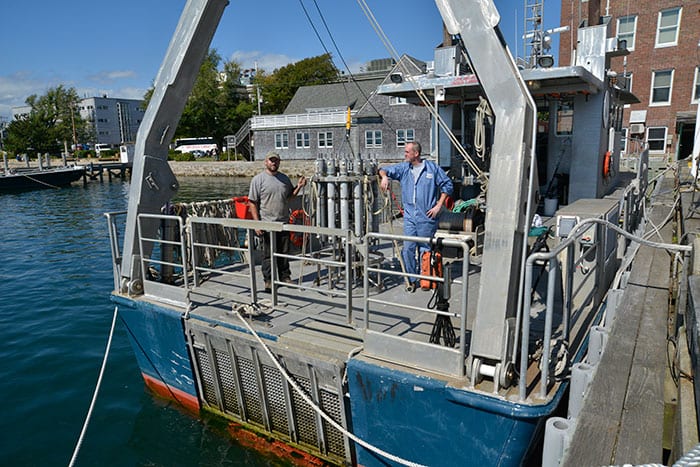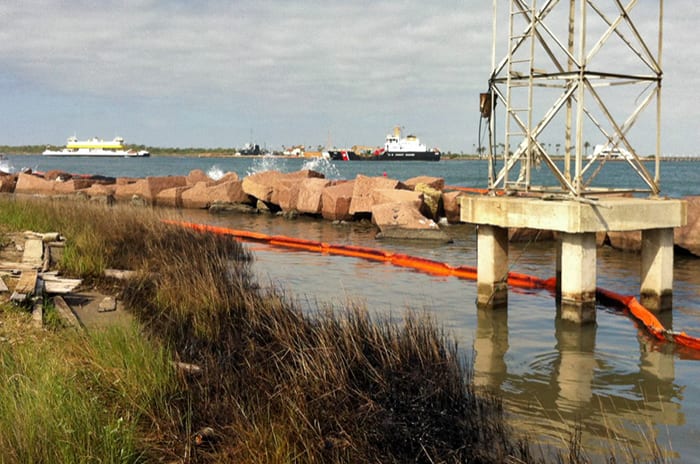Multimedia Items
Sources of oil spills
Sources of oil spills. (Illustration by Jack Cook, © Woods Hole Oceanographic Institution)
Read MoreSniffing Out Oil Spills
An autonomous underwater vehicle tracks a harmless, bright-green fluorescent dye during a demonstration to simulate a rapid response to a maritime oil spill. Members of the U.S. Coast Guard, the…
Read MoreSunlight Affects Oil Spills
A recent study by WHOI scientists Collin Ward and Chris Reddy showed that sunlight plays a critical and previously overlooked role in oil spills. Light energy rapidly alters the chemistry…
Read MoreIllustration of a subsea oil seep
About one-half of the oil in the ocean comes from natural oil seeps. Marine chemist and Coastal Ocean Institute Director Chris Reddy studies oil that is naturally seeping into the…
Read MoreComparison of oil dispersant effectiveness in different weather
A recent study by WHOI scientists Collin Ward and Chris Reddy showed that sunlight plays a critical and previously overlooked role in oil spills. Light energy rapidly alters the chemistry…
Read MoreA Line of Oil
An airplane sprays chemical dispersants on an oil slick in the Gulf of Mexico during the 2010 Deepwater Horizon oil spill. Dispersants are often used to break oil into small…
Read MoreOil and Sunlight Don’t Mix
An airplane sprays chemical dispersants on an oil slick in the Gulf of Mexico during the 2010 Deepwater Horizon oil spill. Two new studies by WHOI researchers found that sunlight…
Read MoreOil Spill Forensics
When an oil spill occurs, WHOI marine geochemist Chris Reddy often flies to the spill site to collect oil samples. In this case, Reddy only had to walk down the street from…
Read MoreOil Collectors
WHOI marine chemist Chris Reddy and colleagues have been collecting samples of oil washed up on beaches during the Deepwater Horizon oil spill ever since the spill began, and archiving…
Read MoreOil and Water
Oil spills aren’t pretty, but this one is perfectly natural. WHOI scientist Chris Reddy and colleagues from the University of California, Santa Barbara, have been studying areas off the Santa…
Read MoreOil Spill Pioneers
Science in a Time of Crisis Part 1: Oil Spill Pioneers On Sept. 16, 1969, the barge Florida ran aground off Cape Cod, rupturing its hull and spilling more than…
Read MoreOily tidal pools
Oil washed into the West Falmouth marsh and tide pools after a 1969 spill, with disastrous consequences for these small marine animals in a tidal pool. Though the marsh now…
Read MoreFollowing an oily trail
Oil and methane bubble to the ocean’s surface from seeps off Coal Oil Point, near Santa Barbara, California. The oil seeps provide a natural “laboratory” for WHOI chemist Chris Reddy…
Read MoreOil spill victims
Oil washed into the West Falmouth marsh and tide pools after a 1969 spill, with disastrous consequences for these small marine animals in a tidal pool. Though the marsh now…
Read MoreOcean Encounters: Pollution
From plastic to oil spills, experts Chris Reddy and Asha de Vos discuss ocean pollution solutions on Ocean Encounters
Read MoreLessons from Deep Water Horizon – 10 years later
Ten years ago, Dr. Chris Reddy and dozens of his colleagues were called to the Gulf of Mexico to address what would soon become the largest human-caused oil spill in history. What have we learned a decade later? Join us as Chris takes a look back at how far we’ve come and answers your questions about what science can tell us about oil spills and the ongoing recovery on land and in the ocean.
Read MoreA Royal Gift
WHOI engineer D.C. Collasius scans a model of the hull of WHOI’s former research vessel Chain in WHOI’s rapid prototyping center, DunkWorks. He made a replica of the ship to…
Read MoreReady Response
Fluorescine dye stood in for oil in a recent test of a new system to track oil spills underwater using a REMUS autonomous underwater vehicle (AUV), visible in the background.…
Read MoreSwift and Steady
Earlier this year, scientists and crewmembers aboard the R/V Tioga retrieved an underwater mooring from Nomans Land, a small island south of Martha’s Vineyard near the Martha’s Vineyard Coastal Observatory…
Read MoreOpen for Science
Some young visitors to WHOI’s Ocean Science Exhibit Center learned about oil spills and some of the clean-up techniques during Splash Lab last summer. At the Exhibit Center, visitors can…
Read MoreA Wonderful Life
Oceanographer Emeritus George Hampson (right) contributed to many studies of invertebrates in marine systems, ranging from the intertidal zone to deep water. He was also one of the pioneering scientists to study…
Read MoreOcean Robots: Hydrocarbon Seeps
Places where hydrocarbons naturally seep from the seafloor provide a way to study how oil spills in the ocean change over time. But scientists need vehicles like Sentry, Jason, or…
Read MoreTioga at Ten
WHOI’s coastal research vessel, R/V Tioga, gets some attention in port from crew member Ian Hanley (left) and Captain Ken Houtler. Equipped with water samplers, a current profiler, an echo-sounder,…
Read MoreThe ‘Dirty Bathtub’ Effect
Over 168,000 gallons of intermediate fuel oil were released into Galveston Bay on March 22, 2014, when a collision occured in the bay’s shipping lane. Over 200 miles of Texas…
Read More
